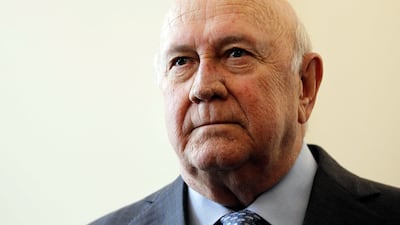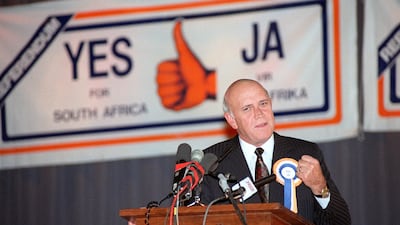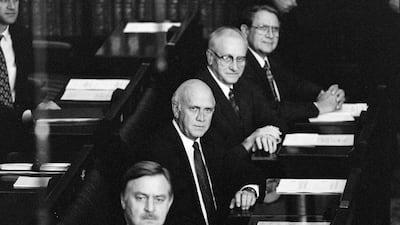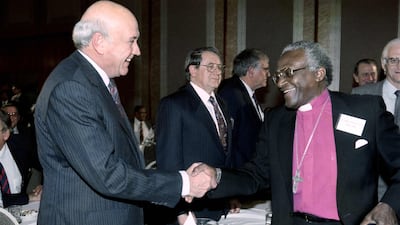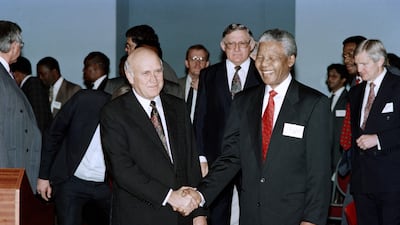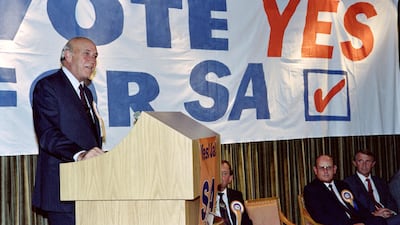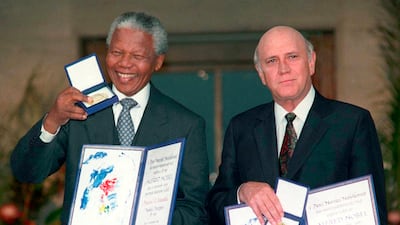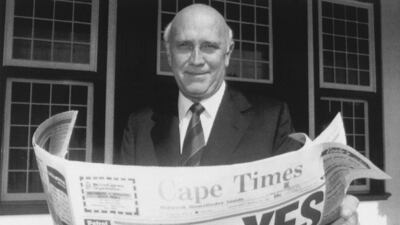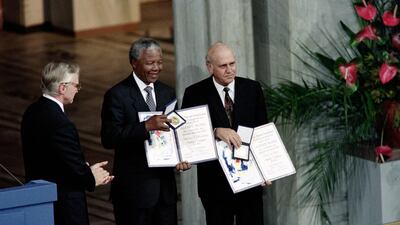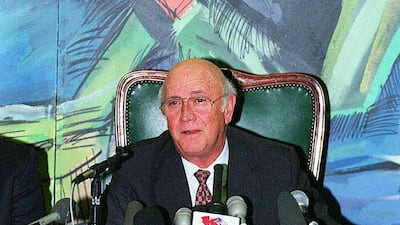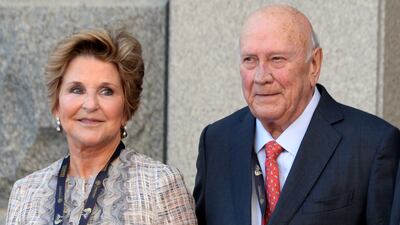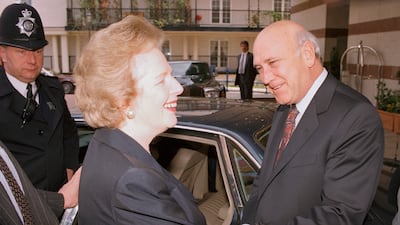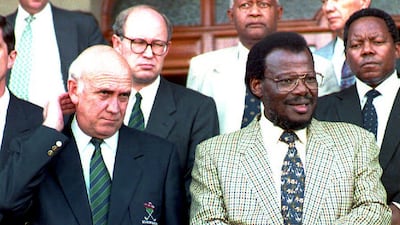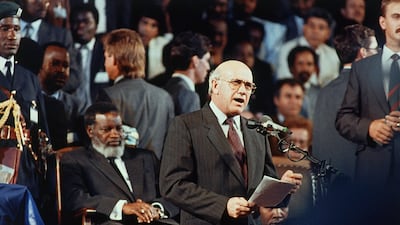South Africa's last white president, Frederik Willem de Klerk, who negotiated a peaceful transfer of power to a government under Nelson Mandela, died on Thursday aged 85 after a battle with cancer, his foundation said.
De Klerk was feted globally for his role in ending apartheid and he shared the Nobel Peace Prize with Mandela in 1993. The following year Mandela won South Africa's first multiracial elections with his African National Congress (ANC).
But de Klerk's role in the transition to democracy is still highly contested more than 20 years after the end of apartheid.
Many black South Africans were angered by his failure to curb political violence in the turbulent years leading up to the 1994 elections, while right-wing white Afrikaners, who had long ruled the country under de Klerk's National Party, viewed him as a traitor to their pursuit of white supremacy.
"Former President FW de Klerk died peacefully at his home in Fresnaye earlier this morning following his struggle against mesothelioma cancer," the FW de Klerk Foundation said in a statement on Thursday morning.
In March he was found to have mesothelioma, a cancer that affects the tissue lining the lungs.
"He is survived by his wife Elita, his children Jan and Susan and his grandchildren," the foundation said, and that the family would in due course make an announcement regarding funeral arrangements.
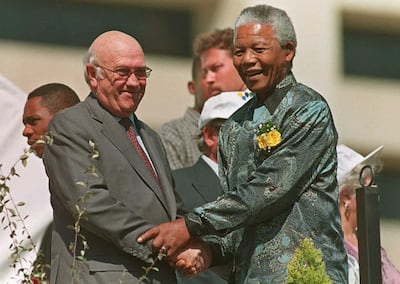
Although no longer active in South African politics, de Klerk prompted anger among supporters of president Jacob Zuma in 2016 when he accused them and their leader of seeking to advance their personal interests and of endangering the country's constitutional democracy.
De Klerk again was criticised last year when he told a national broadcaster that he did not believe apartheid was a crime against humanity, as declared by the United Nations.
The backlash triggered by his remarks forced de Klerk to withdraw from an online seminar with the American Bar Association in the United States, where he had been due to speak on issues such as minority rights and racism.
"The allegation that de Klerk was involved in gross violations of human rights is baseless," his foundation said in July 2020 when he withdrew from the event.
"However, it appears unacceptable in the current super-heated racial climate that any leader from South Africa’s troubled past should be permitted to retain the slightest vestige of honour," it said.
